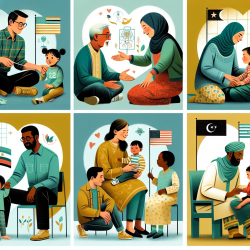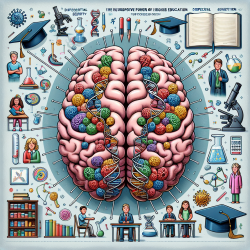Introduction
In the realm of speech language pathology, understanding the dynamics of parent-child relationships can significantly influence therapeutic outcomes. A recent study titled "Parent–Child Relationship Typologies and Associated Health Status Among Older Adults in the United States and China: A Cross-Cultural Comparison" provides valuable insights into how these relationships vary across cultures and their implications on health.
Understanding the Study
The study utilized data from the U.S. Health and Retirement Study and the China Health and Retirement Longitudinal Study to explore the typologies of parent-child relationships and their health implications among older adults. The research identified distinct classes of relationships in both the United States and China, highlighting cultural differences in intergenerational support and its impact on health.
Key Findings
- In the U.S., relationships were characterized by geographical proximity and frequent contact, with a focus on downward support (from parents to children).
- In China, relationships were more likely to involve coresidence and upward support (from children to parents), reflecting a collectivist culture.
- Providing downward support in the U.S. was associated with better health outcomes, while receiving upward support in China was linked to poorer health conditions.
Implications for Practitioners
For speech language pathologists, these findings underscore the importance of considering cultural contexts when assessing family dynamics. Practitioners can enhance therapeutic outcomes by:
- Incorporating cultural sensitivity into therapy plans, recognizing that family roles and expectations can vary significantly between cultures.
- Encouraging open communication between parents and children to foster supportive environments that promote better health outcomes.
- Utilizing family-based interventions that align with cultural values, such as emphasizing independence in the U.S. or mutual support in China.
Encouraging Further Research
While this study provides a foundational understanding of cross-cultural differences in parent-child relationships, further research is needed to explore these dynamics in more diverse populations. Speech language pathologists can contribute to this body of knowledge by conducting studies that examine the impact of these relationships on language development and communication skills in children.
To read the original research paper, please follow this link: Parent–Child Relationship Typologies and Associated Health Status Among Older Adults in the United States and China: A Cross-Cultural Comparison.










